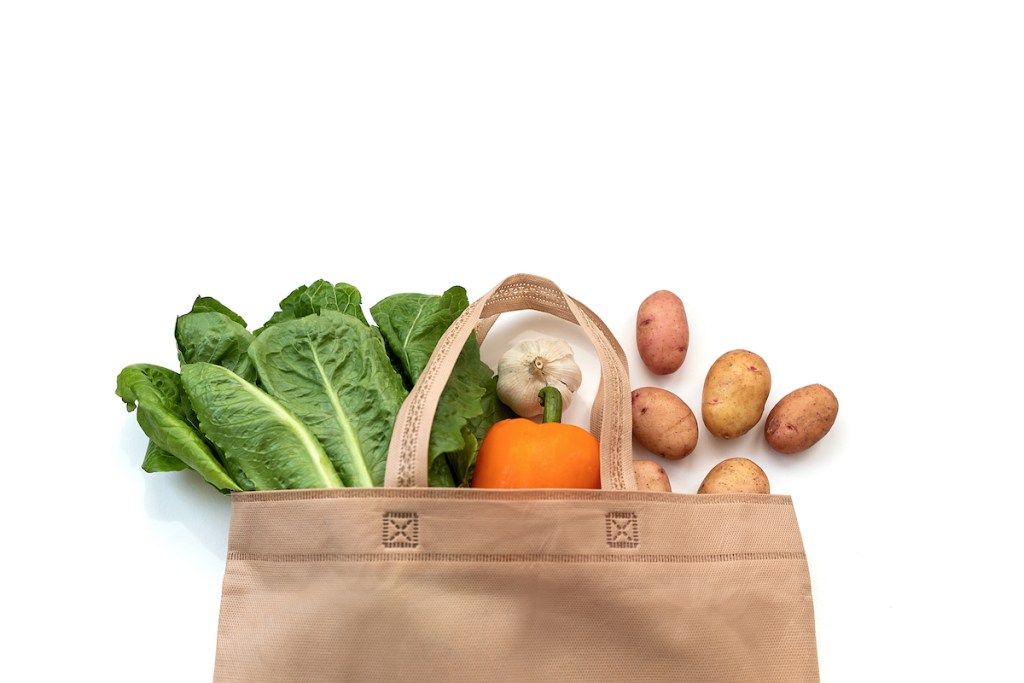There’s nothing quite like spending a soothing morning or afternoon exploring the fresh produce and goods at your local farmers market. Frequenting your farmers market is a great way to support your local community while getting fruits and veggies in their peak season for the best flavor. If you’re new to shopping the stands, you might have questions about how to make the most of your visit. Ahead, we’ve rounded up helpful tips for making your next farmers market trip the most successful it can be.

Go earlier or later in the day
Strategic timing can enhance your farmers market experience, but there are different ways to go about it. The early bird does, indeed, get the worm. You’re more likely to find the freshest picks without the crowds when you swing around the stands just as the market opens. On the flip side, stopping by the market during closing time may mean better deals as vendors try to sell off their remaining produce. If you’re looking to avoid crowds altogether, check to see if your farmers market has weekday events.
Walk around first
We recommend browsing the farmers market before you commit to buying from the first stands that you see. This way, you’ll get a better sense of the produce available, so you can select the freshest picks at the best prices. It’s a good idea to set aside at least 10 or 15 minutes at the beginning of your visit to explore the stands.
Bring cash
While more vendors are accepting card these days, many still ask for cash. To keep your transactions going smoothly and avoid stalling lines, keep some cash in your wallet. Check your piggy bank for loose change or head on over to your local ATM to pick up small bills before you hit up the farmers market.

Bring your own bag
Some vendors won’t have plastic bags, so it’s a good idea to bring your own tote bag for your food haul. This also keeps everything in one place and cuts down on plastic waste. If you’re planning on buying a lot of produce, you might want to invest in a collapsible cart, a convenient option for pushing around your buys if you’re planning to stay at the market for a while.
Look for houseplants and flowers
Fresh produce, snacks, and canned goods aren’t the only great finds at the farmers market. Depending on where you live, you can usually discover houseplants and flowers at your farmers market. They’re often healthier and more affordable than the ones at big-box garden centers, so keep an eye out for non-produce goods, too.
Plan your meals
Going to the farmers market isn’t all that different from going to your grocery store, which means that impulse buys are always tempting. Planning your meals ahead of time and bringing along a list will help you save money and track down all the ingredients you need. While there’s no shame in picking up extra fruits and veggies, planning your meals ahead of time will be more economical in the long run. Plus, you won’t run the risk of wasting food.
Get to know local farmers and vendors
One perk of shopping at a farmers market is getting to know the people who grow and supply your food. Don’t be shy about asking them questions, like where their produce comes from. You might even want to ask if their supplies are organic or non-GMO, if those are factors you personally care about. Building relationships with your local vendors will help you form a sense of community at the market. Plus, sellers may even let you know about deals and other events!

Know what’s in season
If you’re browsing the farmers market in the winter, chances are you won’t find the tastiest or most affordable peaches and watermelons. Knowing what’s in season will help you enjoy fruits and veggies at their seasonal peak. Plus, keeping in mind the seasonal goods will help you save time and allow you to scout for the best deals.
Consider bringing a cooler
If you’re going to be out for a long time, consider keeping a small cooler in your car. These days, many farmers markets will offer more than just fresh fruits and veggies. Some vendors even sell eggs, poultry, and fish!
Buy in bulk
Circling back to the idea of shopping by season, consider buying produce in bulk when they’re at their seasonal peak. This way, you’ll get the best flavors and prices. If you don’t want your food to go to waste, you can freeze or preserve them for later use.
Wondering how to find a farmers market near you? You’ll often find flyers at local community centers, libraries, and transit stations for farmers market events. The Local Harvest and the USDA websites also have online directories for farmers markets across the nation.
Going to the farmers market is a fun way to get to know your local farmers and vendors. From scouting the stands to bringing cash, learning how to navigate a farmers market will help you have more successful and bountiful trips. Once you familiarize yourself with these tips, you’ll be well on your way to selecting fresh produce and cooking tasty meals.



